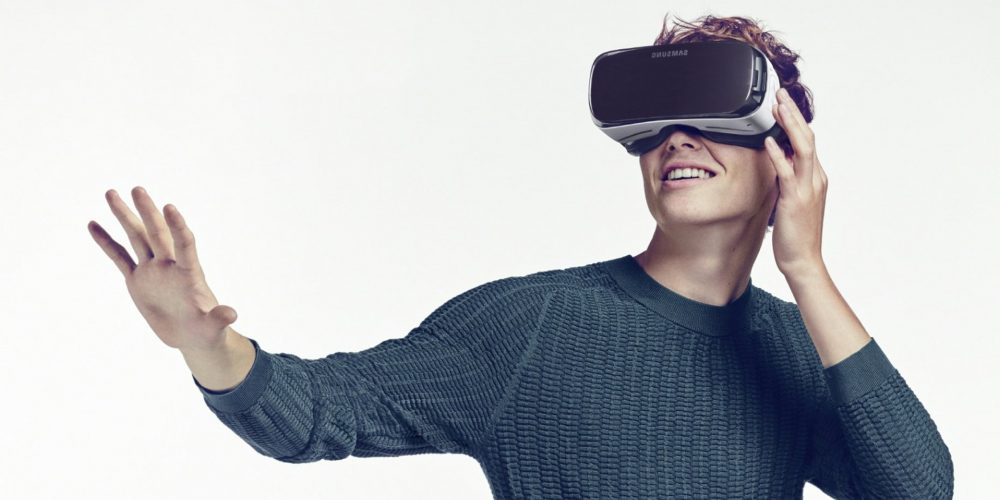The third annual The Game Awards show celebrated the best the video game industry had to offer last week by broadcasting live over a wide variety of digital channels, including VR. Virtual reality livestreaming was handled by NextVR, which also partnered with the NBA to deliver weekly live games in VR and created the NFL post-game experiences. The company brought its expertise in broadcasting live sporting events to make The Game Awards the first awards show to be livestreamed in VR.

NextVR’s vice president of content, Danny Keens, recently spoke to [a]listdaily about working with The Game Awards and described the company’s goals: “When you imagine consuming VR content, we want you to imagine NextVR as a broadcasting network with a large variety of programming brought to viewers regularly.”
In talking about how the company came to work with The Game Awards for a VR broadcast, Keens explained that “NextVR is known for expertise in livestreaming sports and entertainment events, so partnering with an awards show that honors the achievements in the video game industry is both a natural fit and an incredible way for us to continue making consumers aware of our content—while tapping into one of the largest most dedicated audiences in gamers. The Game Awards is the first awards show livestreamed in VR, so we were excited to be the first to do it.”
The VR livestream of The Game Awards can be watched using the NextVR app, which is currently exclusive to Samsung Gear VR devices. However, Keens said that the app will soon be available for all headsets. Until then, viewers who don’t have access to a Gear VR will have to stick to watching the traditional 2D version of the show across a huge selection of digital channels, including YouTube, Twitter, Facebook Live, the PlayStation Network, Xbox Live, Twitch and Steam. “A translated version of the show will also be available for viewers in China through QC, a Chinese social network,” Keens added.
Keens also explained how cameras were placed in unique areas so that the VR experience had perspectives that neither the 2D broadcast or even live attendance could offer.
“The live VR broadcast of The Game Awards featured VR camera rigs placed throughout the Microsoft Theater. Viewers had multiple vantage points of the show, including a front row seat next to some of the biggest names in the industry. An on-stage robotic camera built especially for the show moved around during the broadcast to continually give VR viewers a new perspective on the awards and musical performances. Instead of just watching, we are transporting viewers into the screen and putting them on stage with their favorite artists.”
When asked about the challenges of broadcasting a live show in virtual reality, Keens said that “with virtual reality, it’s new and the perspective is different than watching content on television, so we are still working on best practices and ways to deliver the most ideal experience to viewers. With an opportunity like an awards show, it’s about coming up with the most compelling experience and creating a product that demonstrates the capabilities of VR and doesn’t simply re-create the linear broadcast experience that one would see by turning on their TV set or watching the show elsewhere.”
Keens went on to describe how VR could be used to enhance the viewing experience for awards shows. “Just as with sporting events, viewers are getting closer to the action than ever before,” he said. “You could see the show in its entirety from multiple different vantage points, but we were also able to create different virtual environments that we dropped into the production. For example, with The Game Awards, viewers were able to see a jumbotron in the Microsoft Theater playing a variety of 2D content (trailers, nominations, etc.) from their VR devices. You’ve never been able to step inside the television screen and experience an awards show like this before. Rather than catching highlights of the show on the big screen or on your mobile device, you’re actually able to attend. The technology allows viewers to feel inches away from the action and feel fully present.”
So, what kind of impact will VR have on live events? “Live virtual reality will forever change how fans experience live events,” said Keens. “The next 12 months will mark the first time fans will be able to watch live sports in VR on a consistent basis, thanks to our partnership with the NBA. It is undoubtedly the most immersive way ever to experience sports, and it will become the de facto sports watching medium of the future.”
According to Keens, the future of VR looks bright, particularly in the mobile viewing space. “In 2017, you will see the biggest electronics companies all over the world continue to make headsets and groundbreaking technology to support VR,” he said. “Mobile manufacturers are making screens with higher resolutions and better processors, which will improve the quality of the VR experience. With all of those changes happening, VR is going to become mass market and people will spend more and more time immersed in the technology.”

